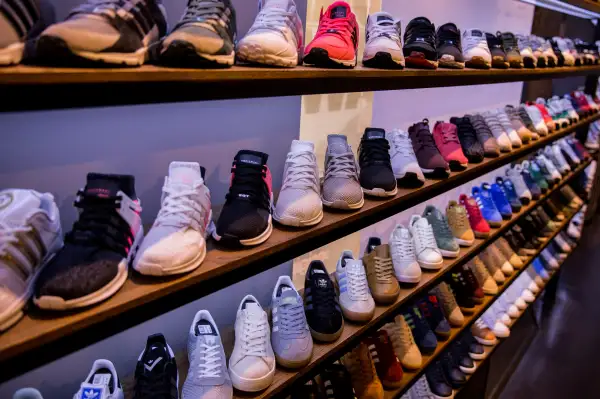The Best Shoes for Curing Your Foot Pain Might Only Cost $30

Can shoes be both cheap and comfortable?
A Facebook user recently posted a plea on the Non-Consumer Advocate page on just this topic, kicking off a lively discussion that generated some solid shoe recommendations.
Specifically, the individual asked for help from the frugal-living group to track down reliable and comfortable shoes to mitigate pain from plantar fasciitis (which, if you’re lucky enough to not be afflicted by, is an inflammation that causes heel pain).
So, what do the frugally-minded foot pain sufferers on Facebook think? Many chimed into the original thread with a host of recommendations for shoe styles and brands, inserts like heel lifts and insoles, along with tips for exercises and stretching. Among the brands that got the greatest number of shoutouts were Birkenstocks; fans raved about not only their classic sandals, but their clogs and boots, as well.
The drawback is that Birkenstocks aren't what most people would consider cheap, clocking in at more than $100 for most sandals, and even more for clogs and boots. But another brand a lot of people praised were Sketchers. This brand makes a variety of casual, athletic-inspired and athleisure-style footwear, with some styles starting at less than $30, and even their more performance-oriented sneakers coming in cheaper than many competing brands.
Are Skechers good for people with foot pain then? Well, because all feet are different, experts say there are no universal rules for what shoes are most comfortable. Even if you've loved one set of shoes from a particular brand, it doesn't mean than another model of footwear from that same brand will suit you well.
"Not every shoe within a brand is going to be right for you,"says Lori Weisenfeld, a DPM (doctor of podiatric medicine) and sports podiatrist. "Generally, people with a flat foot need a supportive shoe and less cushioning," she said. "If somebody has a very high-arched foot, they tend to need more cushioning."
Finding a good match is particularly tricky if you experience foot pain. Getting the correct amount of arch support for the shape of your foot is critical, whether your foot pain is plantar fasciitis or something else.
Lots of people self-diagnose plantar fasciitis, but there are many other reasons your dogs might be barking, says Ami Sheth, DPM and past president of the California Podiatric Medical Association. "I think the bigger issues is you need to make sure that if you have foot pain and it’s persistent, I would say you need to get that looked at," she says.
The good news is that if you've already been diagnosed, you can find affordable shoes for plantar fasciitis — and you don't need to buy shoes for plantar fasciitis specifically, as long as you follow these criteria. "You need to make sure any shoe, expensive or not, actually fits your foot," Sheth says.
Your shoes should be sufficiently supportive, Sheth and Weisenfeld say. Practically speaking, this means if you can sharply bend, fold, or twist a shoe, it's probably not going to have enough support to get rid of foot pain.
If you want shoes for foot pain that will keep you comfortable while walking around town, running errands, or doing jobs that require you to be on your feet, avoid overly flat shoes. "For spending a lot of time on your feet you want it to have a little bit of heel rise, or you can add a heel lift into a very flat shoe," Weisenfeld says. If you need more arch support, a well-made insole, even if it's inside an inexpensive shoe, can go a long way.
While slip-on styles are popular, people with foot pain might instead want to stick to casual shoes that lace up, Sheth says. "Lace-up will always give you more support because you’re able to adjust the support you need higher up the shoe." Slip-ons can cause irritation or discomfort if they're too tight or too loose, and you don't have as much leeway to make them conform to the shape of your foot, she says.
Ultimately, spending a little more on shoes that fit you well is smarter than buying cheap shoes that are uncomfortable — because you won't wear them long if they hurt your feet.
"The price point is not as important as the shoe type and the foot type," Weisenfeld says. In other words, if the shoe fits... you know.
